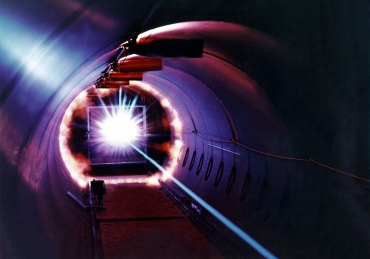Husband and wife intimacy for those following the earlier Fajr fatwa
By (Shaykh) Abu Asim Badrul Islam
Many have been asking and wondering how, given the very tight timing we have this Ramadan, they may be able to engage with their spouse intimately.
The predicament arises from the fact that this year, more than ever before, the fasting day is the longest throughout the course of the blessed month. According to the earlier timing fatwa the end of ‘isha and beginning of fajr, throughout the month, in our town will be at 1:22am. This marks the end of the time for ‘isha, tarawih, witr prayers and the eating of suhur. The fasting day lasts approximately 20 hours. Iftar (or breaking of the fast) is to take place at 9:26pm, which is when the sun sets. By the time those who have prayed their maghrib at the masjid return home to eat their iftar, it is about 10pm. ‘Isha and tarawih take place at the masjid at 10:45pm. By the time the imams of tarawih (huffaz of the Qur’an) complete the tarawih, it is about 12:20-12:30am. People have to then rush back home in order to eat their suhur before the cut-off time of 1:22am. When, then, can those who are married be able to engage with their spouse?
We are in an exceptional and extenuating circumstance here in the UK during these Ramadan months of summer. For those who follow the fatwa of later fajr, there really isn’t a problem, as they have ample time after returning home from ‘isha and tarawih. The difficulty exists only for those who follow the fatwa of earlier fajr. The Shari’ah acknowledges exceptional circumstances and allows the believers flexibility and often grants special dispensations in matters. I believe in the matter at hand, a common sense and safe approach ought to be adopted both on a collective level (i.e. by the imams leading tarawih and masjid management committees) and individual level (i.e. the married believer). There is no need to go to any extreme or undergo unnecessary hardship like the brother who recently said to me that he sleeps in a separate room, away from his wife, throughout the month of Ramadan. The Shari’ah does not require the believers to go to such an extreme, nor does it generally approve of the same.
Where Allah Most Magnificent discusses the month of Ramadan, its fasting and i’tikaf (special retreat in the masjid during the final third of the month) in a long passage of Surah al-Baqarah (ayah 183 onwards), He speaks of marital intimacy during the nights of Ramadan. He allows intimacy throughout the night, from the time of iftar (sunset) to the arrival of fajr (al-subh al-sadiq – true dawn) unconditionally. He alludes to the fact that prior to this permission, eating, drinking and marital intimacy were all allowed during this period, but with the condition that those engaging in these acts must not have slept from the time of iftar until their engagement in these acts. He alludes to the fact that many of the companions of the Messenger of Allah (may Allah’s peace and blessings be upon him) had sometimes failed in this regard by falling asleep due to the exhaustion of fasting and then waking up to engage in these acts.
Islam is the Deen of Allah Most High that takes man’s natural disposition and inclinations into consideration in all of its tenets and injunctions. Because Allah, the Creator of man, knows that man has this natural desire and need, He spells this out in clear terms in the passage discussing the fasting of Ramadan. In our current exceptional circumstance in the UK, if a married man has the genuine desire and need, or, indeed his wife, for intimacy during the night, and the very tight timing of the earlier fajr fatwa does not allow him to pray the tarawih in congregation in the masjid, eat his suhur and then engage in intimacy, he would be granted the dispensation to pray just the ‘isha prayer with the congregation in the masjid and then come home to pray the tarawih either then or later individually. This is the most prudent and safe course of action. For, if he were to attempt praying the tarawih every night in the masjid, there is a very strong possibility that either he or his wife will sooner or later be overwhelmed by the natural need and desire and thereby violate the sanctity of Ramadan. The penalty of this is painful. Beside keeping a make-up fast (qada’) he or she will be required to set a slave free. If this is not possible, he or she must fast two consecutive months.
On the part of the imams of tarawih (the huffaz reciting the khatm of the Qur’an) and masjid management committees, it is their duty to ensure they do not overburden the faithful. The imams ought not to attempt a completion of recital on the customary and prevalent 27th night of Ramadan or, in some drastic cases as has been witnessed, the 23rd night. They should plan to complete on the 29th night. This way, they will be able to recite a moderate amount (just over a juz’) at a moderate pace, allowing people time to go home a bit early. Even ten or fifteen minutes saved would be gratefully received by the people. On the part of the masjid management committees, they ought to ensure that this happens. They should discuss with the tarawih imams the timing, schedule, plan etc at the outset of Ramadan and reach an agreement with the condition of the faithful in mind during these exceptional circumstances that we face. They should take all measures to ensure that no time is wasted in making announcements, speeches and du’as. People can engage in long du’as individually, in their own time, to their hearts’ content. Everyone concerned ought to prioritise. Announcements and speeches can be left for jumu’ah and other prayer times. Saving people from sin is of paramount importance.
4th Ramadan 1437 / 9th June 2016







